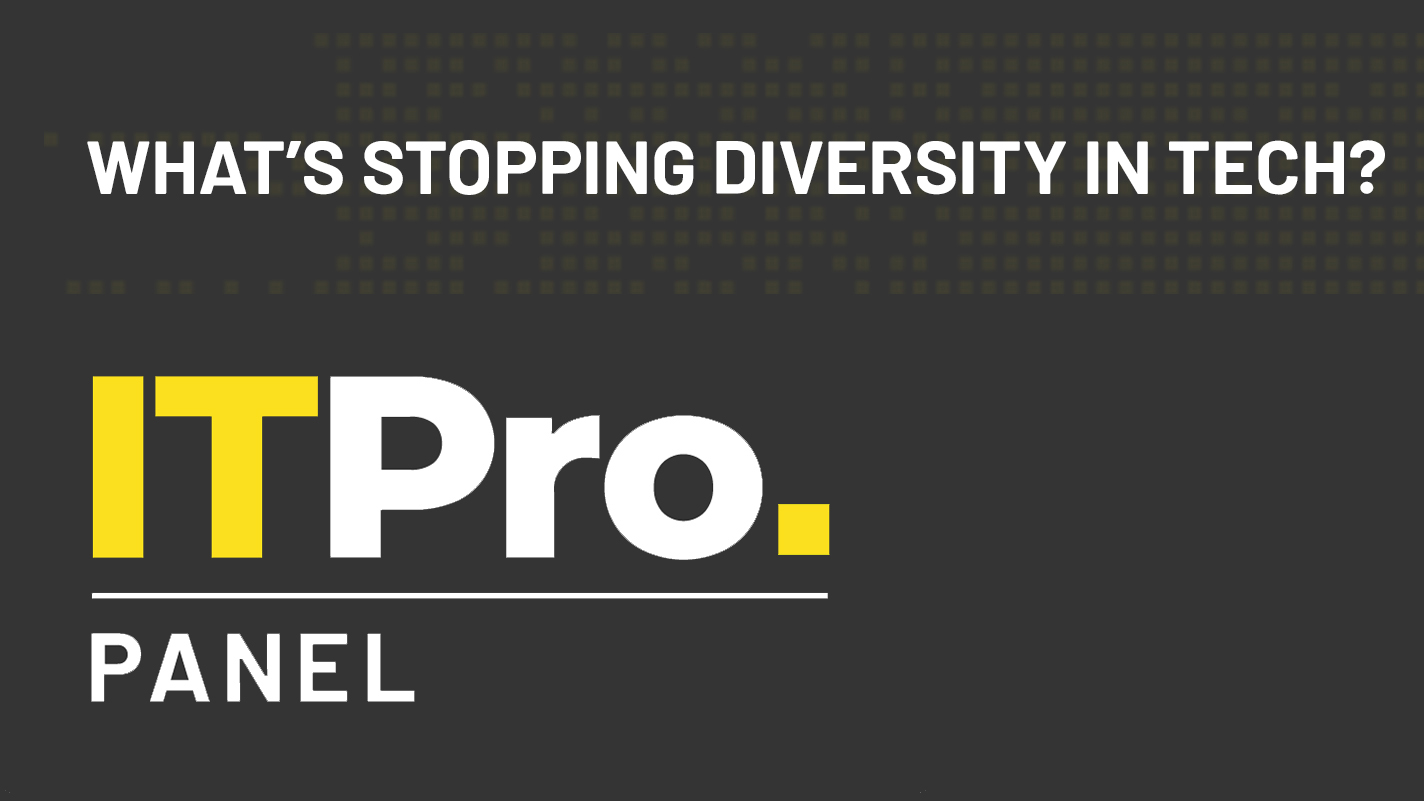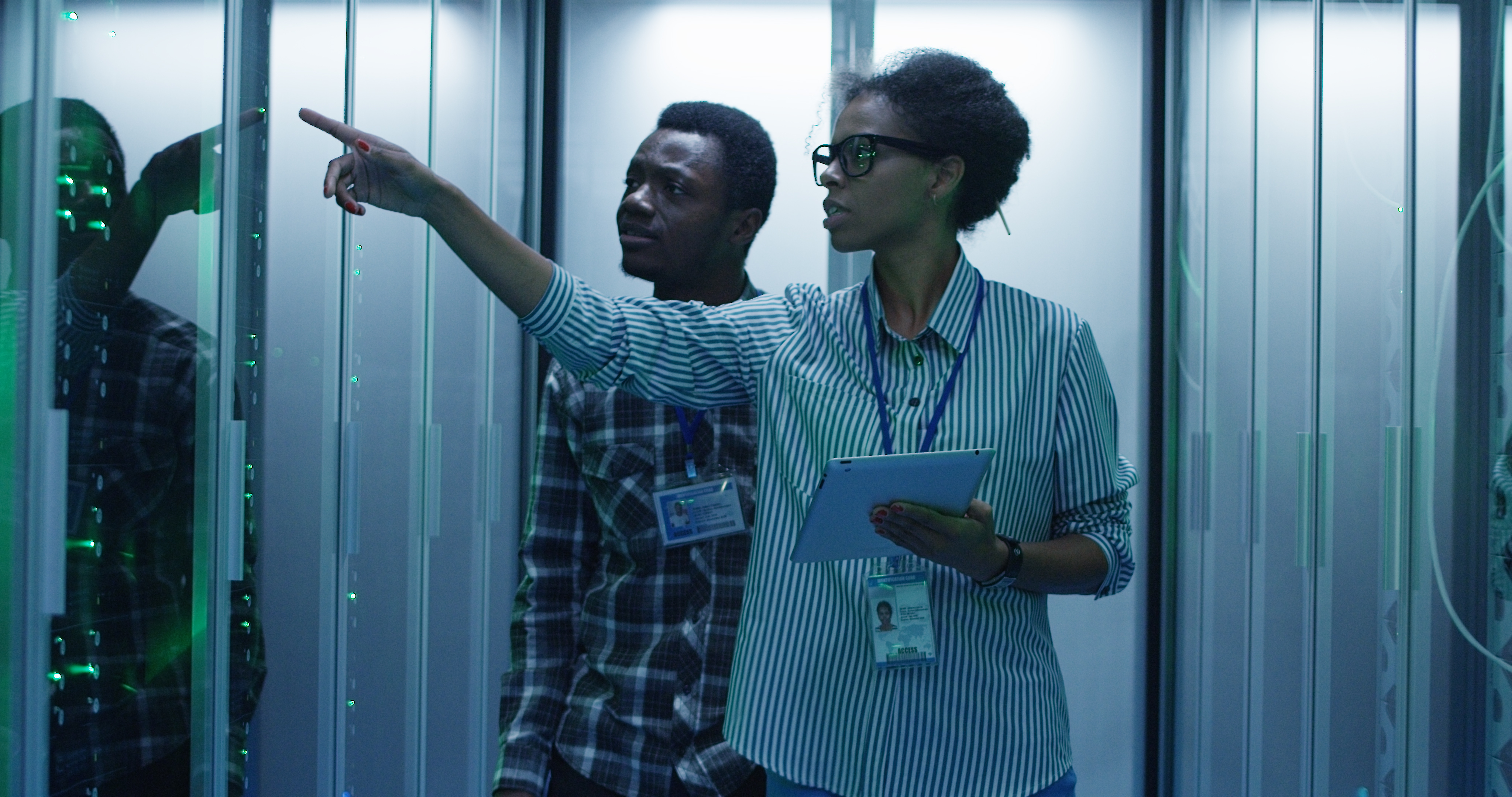Diversity in tech: Why it's OK to be different
Female leaders shared the benefit of their experience at Salesforce's Dreamforce event this week....


Women were encouraged to be more fearless and take greater ownership for their successes in the workplace, during a panel session at Salesforce's annual conference Dreamforce this week.
In the no-seats-left-available session, called 'Leading as a woman in tech' Stacey Torman, Head of EMEA PR and communications at Salesforce, talked through the issues, historic and future with an expert line up of women in senior IT and business leadership positions.
Zeros and ones can be really boring. Tech can be really boring... Unless you have a diverse workforce... if you have - and don't be offended - you have a load of 55-year-old white men sitting around a room trying to figure something out, their background voices are all saying the same darn thing. So let those other voices be heard.
"I'm never going to be a platinum blonde, even if I tried! So, just be yourself. It's very important to understand other cultures and that's what makes us unique. Your perspectives matter as does the diversity you bring," said Suma Nallapati, CIO, State of Colorado.
Maria Jose Lloret Crespo, commercial CIO, GE Aviation, General Electric, said she was tired of not being included in certain conversations just because she's different. But not just because of her gender, more so because of her interests.
"The first thing is to understand where you come from. Not everyone has the same experience. So get to know who you are and don't assume that everyone has the same background, or the same experience because everyone matters," she said.
There was certainly an element of shared frustration in the room, but also a great and united sense of empowerment and confidence that things can and will change for the better. Indeed, when it comes to being likened to 'the mum' in the workplace or calls of being too aggressive, the panellists were in agreement about what action to take. That is, that some conversations aren't worth having/battles worth fighting.
Provided female managers have acted fairly and professionally, they need make no apologies for how that conduct is perceived, particularly when polar opposite terminology would be used to describe the same actions in male management.
Get the ITPro daily newsletter
Sign up today and you will receive a free copy of our Future Focus 2025 report - the leading guidance on AI, cybersecurity and other IT challenges as per 700+ senior executives
"I hear it all the time that women don't want the top job. I hear it from my own managers all the time. It starts very early. Guys and girls do thinks differently in the way they play. Girls collaborate when they play and boys compete. And even though there are females that are very good at competition they don't necessarily see that as a thing that will get them ahead. It's hard for us up against the ceiling when the narrative is that women don't want the top jobs," said Theresa Kushner, vice president, Information Innovation Centre, VMware.
"We're seeing business being done differently. Of all the ones she had ever coached only three that said they wanted to be CEO. The rest of them had different kinds of ambitions but she knew they had the capability. Part of that is about 'Do you really want to play soccer on a field where all of the guys are playing and there are no women you can compete with? There's nobody on the field that looks like you... So I think we have to do now is raise visibility of women at those levels so people can see they can be successful."
Kushner added: "I read something on a blog a while ago that said if Hilary Clinton is elected her nine year old nephew would never have known a world where it was not possible for a black man or a woman to be president. That is definitely a different kind of world."
There's been a lot of talk about equality and diversity at Dreamforce this week and Salesforce CEO Marc Benioff has been leading from the front on ensuring that his company is acting on such issues - LBQT, ethnicity etc as well as gender - rather than just paying lip service.
Just last month, Salesforce appointed its first chief equality officer in former Microsoft exec Tony Prophet, with Benioff saying: "Equality is a core value at Salesforce, and part of the fabric of our culture. Tony will be an incredible addition to our leadership team as our first chief equality officer. His experience as a leader in technology companies and his deep commitment to social issues make him the perfect fit for this key role."
The panellists were very pleased with efforts the company has made so far and suggested others need to follow suit.
"It has to start from the top. It has to start from the bottom. It has to start from the middle. We need to celebrate leaders like Marc Benioff who are playing a very active role and speaking very very loudly about these issues," added Nallapati.
Torman used a good analogy to define the difference between diversity and inclusion, saying "Diversity is everybody being invited to the prom, but inclusion is actually being asked to dance."
Renee McKaskle, CIO of HDS, built on that analogy, quipping: "The flaw in that logic is you're waiting for someone to ask you to dance!"
She continued: "Go ask them to dance or go dance by yourself. Part of that is about being fearless as the concept of failing is paralysing. I got fired from my first job - get it out of the way! There was a fear of there being a record in the sky that Rene McKaskle got fired and will never get another job again.
"I went home and cried to my parents as life as I knew it seemed over. As you move up the fear gets bigger until you're standing on the edge tens of thousands of feet up looking into a cavernous black hole. So, for me, in terms of diversity and inclusion, the inclusion part is have a voice. You need to have a voice, you need to not be fearful and you need to also understand that your voice counts."
Maggie has been a journalist since 1999, starting her career as an editorial assistant on then-weekly magazine Computing, before working her way up to senior reporter level. In 2006, just weeks before ITPro was launched, Maggie joined Dennis Publishing as a reporter. Having worked her way up to editor of ITPro, she was appointed group editor of CloudPro and ITPro in April 2012. She became the editorial director and took responsibility for ChannelPro, in 2016.
Her areas of particular interest, aside from cloud, include management and C-level issues, the business value of technology, green and environmental issues and careers to name but a few.
-
 Bigger salaries, more burnout: Is the CISO role in crisis?
Bigger salaries, more burnout: Is the CISO role in crisis?In-depth CISOs are more stressed than ever before – but why is this and what can be done?
By Kate O'Flaherty Published
-
 Cheap cyber crime kits can be bought on the dark web for less than $25
Cheap cyber crime kits can be bought on the dark web for less than $25News Research from NordVPN shows phishing kits are now widely available on the dark web and via messaging apps like Telegram, and are often selling for less than $25.
By Emma Woollacott Published
-
 It’s the end of the road for Women Who Code, following loss of “critical” funding
It’s the end of the road for Women Who Code, following loss of “critical” fundingNews The organization supporting women in the tech industry is being dissolved 13 years after it was founded
By Emma Woollacott Published
-
 Five common barriers holding back women in tech
Five common barriers holding back women in techWomen in tech still face significant challenges in the workplace
By Keri Allan Published
-
 Report: Brexit and COVID to blame for lack of diversity in tech
Report: Brexit and COVID to blame for lack of diversity in techNews One in two surveyed respondents cited the two events as key factors in the failure to improve diversity in leadership roles
By Sabina Weston Published
-
 Australia allocates $6.7 million to advance women in STEM initiatives
Australia allocates $6.7 million to advance women in STEM initiativesNews Women make up only 28% of the country's STEM workers
By Zach Marzouk Published
-
 IT Pro Panel: What’s stopping diversity in tech?
IT Pro Panel: What’s stopping diversity in tech?IT Pro Panel The need for more diversity is well established - but we still have a way to go
By Adam Shepherd Published
-
 AWS partners with NPower to boost jobs for women of color in tech
AWS partners with NPower to boost jobs for women of color in techNews Command Shift will find tech jobs for underserved group
By Danny Bradbury Published
-
 AWS and The Dream Collective aim to bring more women into tech
AWS and The Dream Collective aim to bring more women into techNews The SheDares learning program offers women expert advice on how to pursue a career in technology
By Praharsha Anand Published
-
 Why aren’t women heading more tech startups?
Why aren’t women heading more tech startups?In-depth Women are in incredibly short supply as founders of top tech firms. What’s going on, and can the situation change for the better?
By Sandra Vogel Published